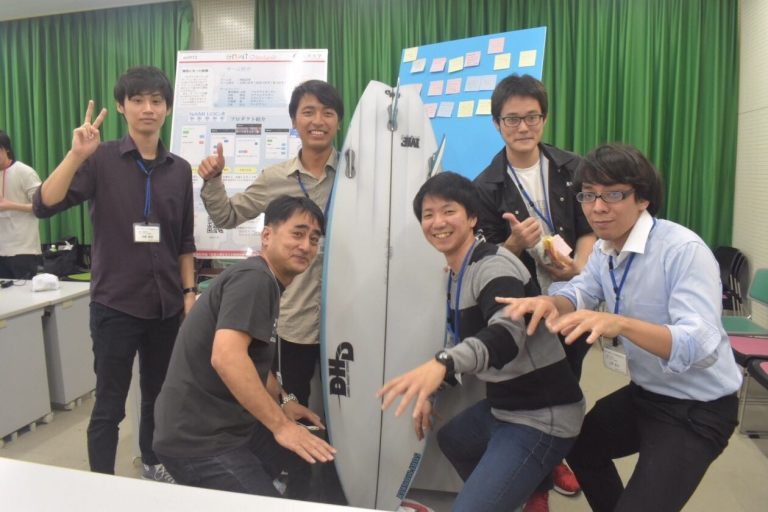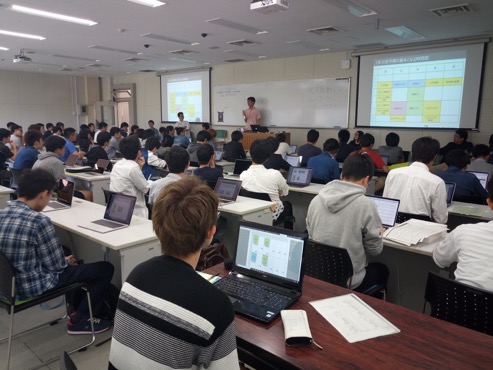Message from the Course Director - University of the Ryukyus, Faculty of Engineering, Department of Engineering, Intelligent Information Course / Graduate School of Science and Engineering, Department of Information Engineering
Thank you for visiting the web page of the Intelligent Information Course, Department of Engineering, Faculty of Engineering, University of the Ryukyus.
Technologies foundational to the Intelligent Information Course, such as IoT system construction, big data analysis, AI, and cybersecurity, are currently the most essential for building an ultra-smart society. The Department of Information Engineering, established in 1993, has continually evolved in tandem with the rapid advancement of computers, smartphones, and the networks (internet) connecting them. In 2017, this department transformed into the “Intelligent Information Course,” emphasizing collaboration with other courses, and enriched its education & research in:
- Computer systems
- Computer applications like robotics and artificial intelligence
- Information communication represented by the internet
- Data science, including big data collection and analysis
- Network security for preserving peace in cyberspace Their renewed mission is to nurture individuals who can excel in the Asia-Pacific region and produce globally competitive innovations.
History of the Intelligent Information Course
- October 1, 1993: Establishment of the Department of Information Engineering (two major courses: System Information Engineering and Intelligent Information Engineering)
- 1997: Introduction of internships (short-term training in companies)
- 1998: Launch of a student contest on LSI circuit design
- 2000: Flexible doctoral preliminary examination
- 2001: Acquisition of curriculum certification for high school information teachers
- 2001: Dispatch of Master’s and Doctoral students to overseas universities and research institutions
- 2005-09: Accreditation by JABEE (Japan Accreditation Board for Engineering Education)
- 2010-12: Implementation of the Engineering Design Education Project (curriculum improvement)
- 2013-16: Participation in enPiT (an initiative for fostering IT talents supporting growth areas) for graduate students
- 2016-Present: Implementation of enPiT for undergraduate students
- 2017: Transition from the Department of Information Engineering, Faculty of Engineering, to the Intelligent Information Course, Department of Engineering

University of the Ryukyus team at the enPiT BizSysD 2018 workshop
Educational Features
One of the educational features of this course is that, shortly after enrollment, first-year students are intensively taught computer utilization techniques through practical education. This helps cultivate their ability to master computer usage and fosters their dedication to academic pursuits. In the second and third years, based on the skills developed in the first year, students learn about computer hardware, software principles and structures, and foundational technologies of information systems. In the fourth year, they are assigned to various research labs, where they conduct research on fundamental and applied themes in the field of information engineering with their supervising professors.
Another significant educational feature is our emphasis on practical lectures to develop problem-solving skills and English education. For this purpose, we invite entrepreneurs and experts for special lectures and, in addition to regular English courses, we offer specialized English subjects exclusively for this course to enhance English proficiency. For the English language examination of the doctoral preliminary program, we adopt TOEIC and TOEFL.

Course Facilities
Our hardware environment includes high-performance servers, PC clusters, desktop PCs, etc. The software environment provides various programming languages, simulation software, LSI design software, etc. We also have a network environment with a campus LAN (wired and wireless) and connections to the outside world, including the internet, data communication lines, satellite communication lines, and high-speed gigabit lines. These environments are regularly updated to always be at the forefront of technology.
With Society
In recent years, the societal impact of technology has been increasing, and with the globalization of corporate activities, international engineer education has become a critical challenge. Therefore, due to the need to evaluate engineer education in higher education institutions, the Japan Accreditation Board for Engineering Education (JABEE) was established in November 1999. Its purpose is to certify engineering education programs at university undergraduate levels and advanced professional courses in technical colleges, ensuring international equivalence and improving quality. Our course received JABEE accreditation in 2005, relatively early compared to other national information departments. However, after 2009, we temporarily halted the JABEE accreditation and revised our curriculum, emphasizing practical mathematics lectures in response to relaxed education, group work, and enhanced engineering design education. Currently, we are actively working on educational methods and improving evaluation methods.
In this educational environment, we hope that our graduates will shine not only domestically but also in businesses, educational and research institutions, and the government around the world.




















